Oct 28, 2025 10:47 AM
In Memoriam: Jack DeJohnette, 1942–2025
Jack DeJohnette, a bold and resourceful drummer and NEA Jazz Master who forged a unique vocabulary on the kit over his…
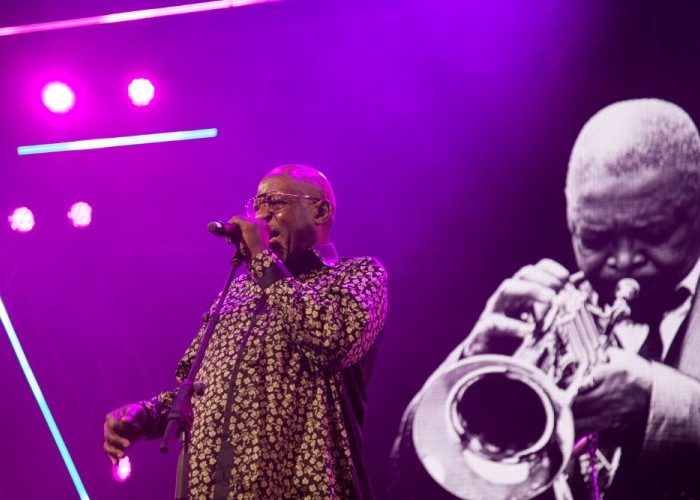
Tshepo Tshola sings at the Cape Town International Jazz Festival in Cape Town, South Africa, during a tribute to the late Hugh Masekela.
(Photo: Onele Liwani)On the eve of this year’s Cape Town International Jazz Festival, which ran March 23–24, some attendees experienced slight trepidation.
Given South Africa’s recent plights—a significant drought in the Western Cape, corruption charges against former president Jacob Zuma and the loss of one of its musical giants, trumpeter Hugh Masekela, on Jan. 23—the event dubbed “Africa’s grandest gathering” aimed at showcasing the country’s resilience and fighting spirit.
Amanda Black’s vocals drew thousands to the Kippies stage on Friday night. And as she belted out intense rallying cries in her native Xhosa tongue, the singer set the tone for the evening—and the weekend.
Performing selections from 2017’s Afro-Caribbean Mixtape (Paytone/Ropeadope), Nicholas Payton opened his set with the album’s title track. As each player settled into the groove, Payton’s melodic trumpet cut through it all. Despite the disparate sounds emanating from Vicente Archer’s bass, Marcus Gilmore’s drums and DJ Lady Fingaz’s turntables, the ensemble’s synergy was palpable, grounded by Daniel Sadownick’s mesmeric percussion patter.
A fuller lineup was in store on the Cape Town festival’s second day, and emotions were high, as much of the lineup paid homage to “Bra Hugh” and other greats of South African music. Simphiwe Dana, who has been hailed as the next Miriam Makeba (1932–2008), was backed by a driving all-female band and accompanied by three equally talented vocalists.
Like Masekala, pianist Robert Glasper—who brought his supergroup R&R=NOW to the Basil Manenberg Coetzee outdoor stage—has faced criticism for playing music outside the traditional boundaries of jazz. And alongside trumpeter Christian Scott aTunde Adjuah, multi-instrumentalist Terrace Martin and drummer Justin Tyson, the ensemble served as a reminder that the scope of the music actually should be expansive and ever-evolving.
Back at the Kippies stage, a heartfelt tribute to Masekela featured a coterie of the trumpeter’s contemporaries, including vocalist Tshepo Tshola and drummer Leeroy Sauls, as a sizable crowd looked on. Current South African President Cyril Ramaphosa was in attendance to honor a man whose music helped draw global attention to the brutality of the country’s apartheid system.
As photos of Masekela were projected on a large screen at the back of the stage, performances of the trumpeter’s classics, like “Stimela,” flowed out of the band; emotions ran high, and for fans, it was difficult not to mourn Masekela’s death.
With the passing of Winnie Mandela, an anti-apartheid activist and ex-wife of Nelson Mandela, on April 2, it seems as though an era that produced heroes and heroines willing to fight for basic human rights might be at an end. However, as this year marks the centennial birthday of Nelson Mandela, the tone of the festival was one of hope, as a new generation is poised to take up the fight. DB
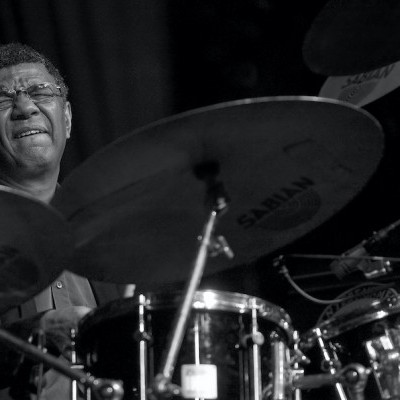
Jack DeJohnette boasted a musical resume that was as long as it was fearsome.
Oct 28, 2025 10:47 AM
Jack DeJohnette, a bold and resourceful drummer and NEA Jazz Master who forged a unique vocabulary on the kit over his…
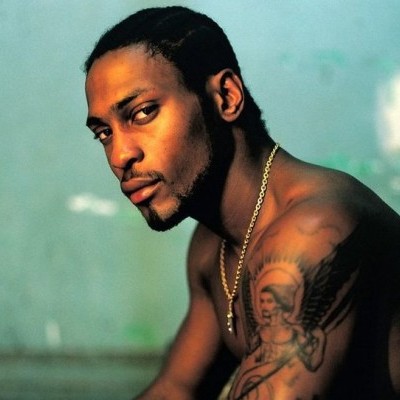
D’Angelo achieved commercial and critical success experimenting with a fusion of jazz, funk, soul, R&B and hip-hop.
Oct 14, 2025 1:47 PM
D’Angelo, a Grammy-winning R&B and neo-soul singer, guitarist and pianist who exerted a profound influence on 21st…
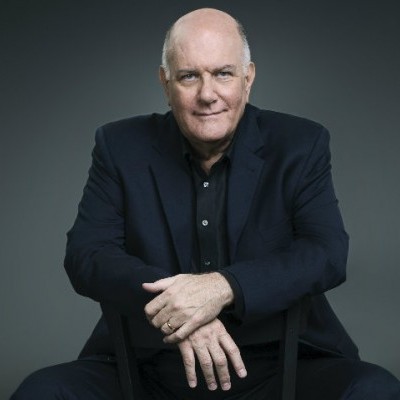
Jim McNeely’s singular body of work had a profound and lasting influence on many of today’s top jazz composers in the U.S. and in Europe.
Oct 7, 2025 3:40 PM
Pianist Jim McNeely, one of the most distinguished large ensemble jazz composers of his generation, died Sept. 26 at…
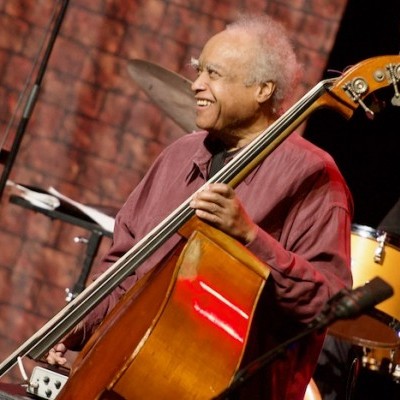
Drummond was cherished by generations of mainstream jazz listeners and bandleaders for his authoritative tonal presence, a defining quality of his style most apparent when he played his instrument unamplified.
Nov 4, 2025 11:39 AM
Ray Drummond, a first-call bassist who appeared on hundreds of albums as a sideman for some of the top names in jazz…
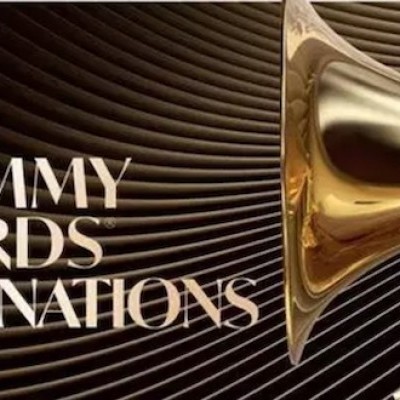
To see the complete list of nominations for the 2026 Grammy Awards, go to grammy.com.
Nov 11, 2025 12:35 PM
The nominations for the 2026 Grammy Awards are in, with plenty to smile about for the worlds of jazz, blues and beyond.…